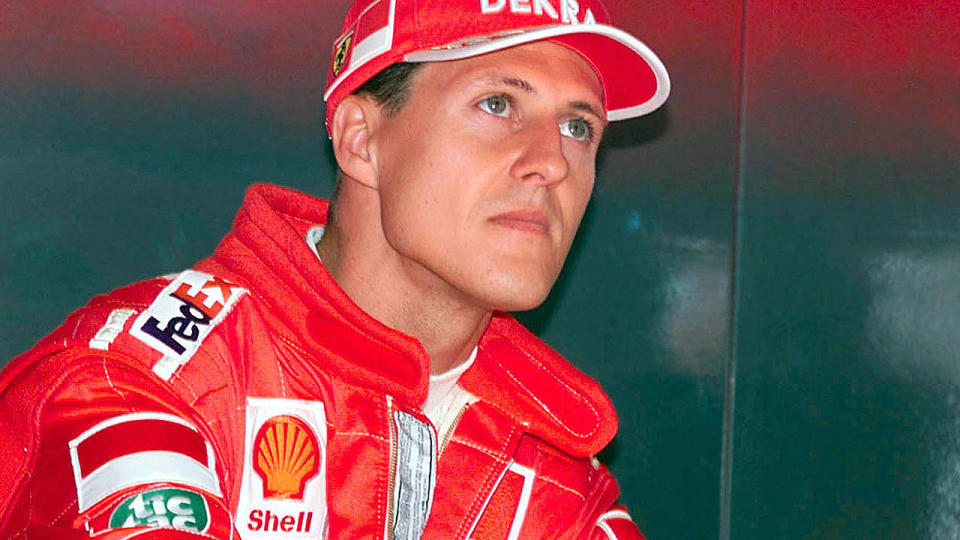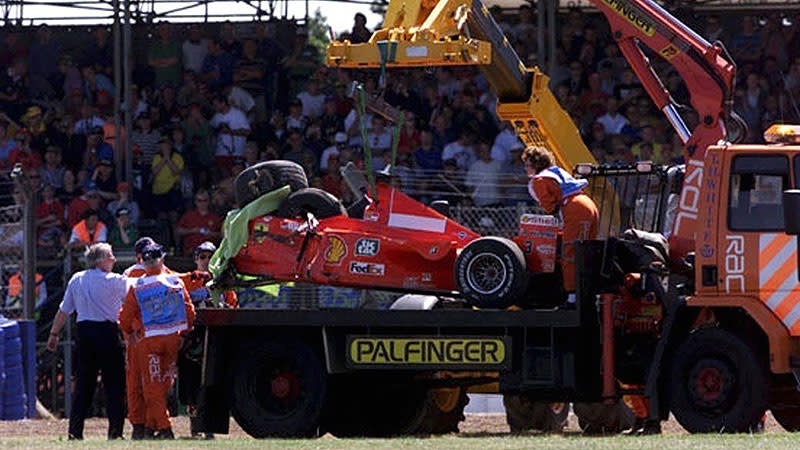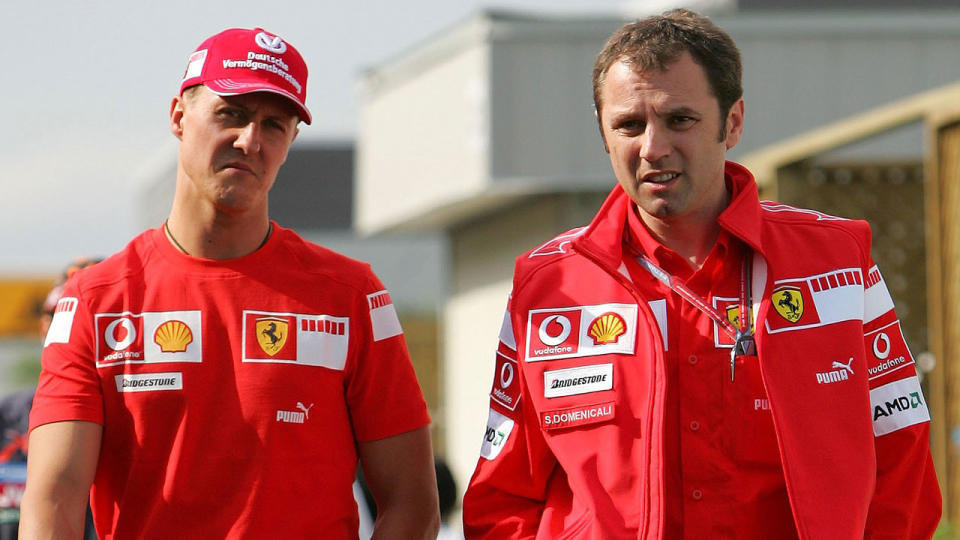The humble Michael Schumacher moment that overcame painful circumstances
Former Ferrari boss Stefano Domenicali says one of the big secrets to Michael Schumacher’s eventual success with the Italian giants was his humble refusal to blame the team for a mistake – even in painful circumstances.
Schumacher moved to Ferrari in 1996 after winning two Formula One world championships with Benetton but the partnership failed to bear early fruit.
The German racer won three races that year – better than the team’s two race wins across 1994-95 – to finish third in the championship before the next two seasons produced devastating results.
HEARTBREAKING: Everything we know about Schumacher’s condition
He was disqualified from the 1997 championship after the final race, having been found at fault for a controversial collision with title rival and eventual winner Jacques Villeneuve, and Schumacher was unable to go one better in 1998.
For a second time the last race of the year – where he arrived with a one-point lead in the championship – proved his undoing, dumped to the back of the grid following a stall at the start and then out on lap 32 with a puncture.
Schumacher and Ferrari might have hoped to turn over a new leaf in 1999 but it turned out to be a wasted year.

Once again battling Mika Hakkinen for the title, Schumacher’s hopes came to an end on the aborted first lap of the British Grand Prix. Two rivals stalled on the grid but as the remaining cars made their way back around, his brakes failed and he suffered a broken right leg in a crash.
The 30-year-old Schumacher missed out on the next six races and slipped down the championship standings.
Domenicali, who was team manager at the time and would rise to become Ferrari team principal in 2008, remembers Schumacher’s response to the setback as a defining moment in his career.
“Another thing that, for me, was really incredible – you never heard from him any single word against the team,” Domenicali told the Formula One website podcast this week.
“In case of a mistake, in case of a problem, never. Inside, of course, (it’s) very tough to say something can happen. But outside – I remember when he had the big crash in Silverstone, the problem was that we didn’t fix a joint in the brake tube, so there was no pressure.
“There was a mistake, but he never said that officially. He never said anything against the team publicly, and this is something that when you are part of such an intense or when you a part of this group, that makes the difference. Because then you are totally dedicated.”

Schumacher’s words from hospital, where he underwent a 90-minute operation to have a 30-centimetre plate inserted into his leg, shared that perspective.
“I am lucky to be alive. It was a very scary moment because it was the first time it has ever happened to me,” he said at the time.
“At first I could not get out of the car and I was worried about the situation. I am thankful for the improvements made in the cars over the last few years because that is what has helped me escape with only a broken leg.
“I know I am going to be out of action for two to three months and I realise I have absolutely no chance of the championship this year. But I am confident I’ll be back driving a Ferrari in Formula One before the end of the season. I am not depressed, I am feeling positive and I’m looking forward even now.”
The German was correct – he was back in the car for the final two races, and he remarkably finished second in Malaysia and Japan to help Ferrari win their first constructors’ championship since 1983.
It was the springboard Schumacher needed. But despite winning the first three races in 2000, his campaign began to unravel midway through the season with two mechanical retirements and two more through accidents.

Perhaps the Silverstone experience provided the necessary steel.
Schumacher fought back, finishing second in Hungary and Belgium and going on to win the final four races of the season to take his first drivers’ championship since 1995.
It was the first of five consecutive titles and kickstarted his stalled path to Formula One greatness.
“We were able to create an incredible relationship that was really out from the normal business perspective,” Domenicali said of the team’s dynamic behind Schumacher.
“We were able to create together sort of things where after the hours when we were out on track, we were able to stay together, heading out to restaurants with the team together.
“It created an incredible atmosphere. Difficult to repeat, because that was very, very specific.”